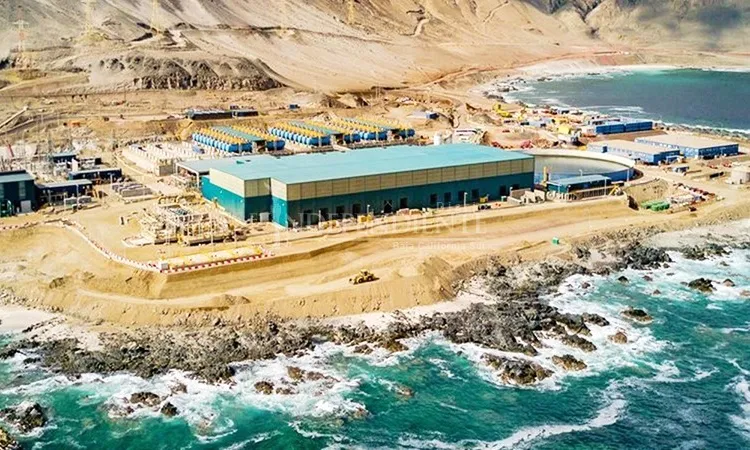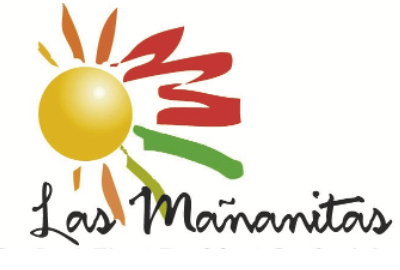Water, Water Everywhere, But …
Reprinted from Gringo Gazette
BY R. LEE SCHULTZ | 5/23/22

And not only with Margaritas. Several hotels are donating part of their desalinated water every day. So far, 17 water trucks are loaded with their water and deliver it mostly to local schools.
The hotel association expects other resorts to participate. There is one neighborhood in Cabo San Lucas that reports that they haven’t had ANY water in 36 days! Others wait between 15 and 20 days to get their water supply. And it’s a hot summer!
The Baja California peninsula, or more accurately, Península de Baja California, is located in Northwestern Mexico. This landmass separates the Pacific Ocean from the Gulf of California, also known as the Sea of Cortez. 'The peninsula extends 1,247 km (775 miles) from Mexicali, Baja California in the north to Cabo San Lucas, Baja California Sur in the south. It has approximately 3,000 km (1,864 miles) of coastline and approximately 65 islands. The total area of the Baja California Peninsula is 143,390 km2 (55,360 sq mi), the 12th largest Peninsula in the world. It is roughly the same area as the lower peninsula of Michigan and slightly smaller than the entire State of Florida in the U.S.
So, you would think that surrounded by all that water, potable water would not be a problem. Well, I am not telling any secrets when say that it is. In just about every survey of Baja Sur residents, water issues are almost always atop the list.
Why a problem? The first reason might be that Baja California Sur is primarily a desert climate. Rain in the Baja Sur is a rare occasion. Annually, Baja Sur receives only 88 mm of rain in a year. For you Gringos from north of the border, that's only 3.5 inches per year. Nearly all that rain falls during the months of August, September and October. For the rest of the year, the sun shines more than 319 days.
All that information begs the question for those of us who live and work in Los Cabos: "Where do we get our water from and who is in charge of providing potable water t the 375,000 or so inhabitants, and the 3 million visitors who come here to vacation each year?" Not simple questions to answer but let's see if we can offer some facts we learned at the April 25th meeting of the Foreign Residents Advisory Board as presented to them by Jose Maria Ramirez, Gerente (manager) of the Municipals OOMSAPAS operations.
First off, OOMSAPAS is the Government's organization in charge of potable water for human consumption. The Los Cabos facility is managed by the local Municipal Government. The Mexican Constitution states that potable water is a human right. It does not, however, provide the means by which to fulfill that right! Funding is always a major issue.
Jose Maria Ramirez began his presentation to the Foreign Residents Advisory Board with the following statement: "There is a real potable water shortage now and there is no sign that it will improve in the near future. I want it known however that no new development is being approved by this administration without having their own desalination plant up and running at the time construction is begun." He went on to advise that there are many permits that were approved by previous administrations that do not meet that requirement. "We have no plans to add them to the OOMSAPAS system. They will simply have to buy their water from a private source." WOW!
Surprisingly, OOMSAPAS has a very limited number of water sources under its control. They have wells that serve San Jose and only two wells to serve Cabo San Lucas. It is interesting to note that
there are 32 private wells all under license from CONAUGA (The Federal Authority).
There is a rainwater reservoir located in the mountains above San Jose that supplies water to San Jose only. There is only one desalination plant under municipal control. Two other plants are under the control of FONATUR and are not part of the OOMSAPAS system. Good news, however. The one plant under OOMSAPAS control which now produces potable water at 180 L. per second has received federal funding to expand its capability more than two-fold. When completed, the upgraded desalination plant will produce 480 L. of potable per second. That expansion however will take 2 ½ years to complete.

OOMSAPAS is moving quickly to address the water shortage problem. The upgrade to the well is fully funded with the project commencing in early to late May of this year. A second desalinization plant is in the Federal approved budget for next year. That's good news! But that entire process from budget approval to the first drop of water coming out of the pipe will take years to complete. Help is on the way but will take time!
What is needed now is more conservation efforts. This Board will take a proactive position and plans to present to Mayor Oscar Leggs a series of possible conservation suggestions for his consideration.
As was noted earlier in another article, the Los Cabos Hotel Association has stepped up to the plate to help the community's water shortage. In a recent agreement, they will take surplus water from of the 47 operational hotel desalination plants to supply their excess water production to local schools. That will relieve some of the pressure from the municipal water supply. It should be noted that we often hear that it is the hotels that are causing the water problem. 47 of the larger resorts have desalinization plants. That's a lot of water the city doesn't have to provide to our visitors.
OOMSAPAS controls and is responsible for over 300 0cal distribution areas within the municipality. A huge responsibility. Each of these areas has a local committee and delegate to oversee what is happening within their areas. You might want to find out who that local delegate is in your area and work with them to suggest ways to improve your area's problems.
The Foreign Residents Advisory Board also noted that there seem to be many water leaks and supply infrastructure breakage. That causes a great deal of water to be wasted. Jose Maria offered some help in resolving that problem: OOMSAPAS now has a private phone number for English-speaking foreign residents to use to report those water breaks. That number IS 624-146-4113. The phone line is managed from 7:00 AM to 3:00 PM. Ask for Engineer [van, who speaks very good English and he will work quickly to make any repairs you report.
OOMSAPAS is also responsible for repairing any damage done to streets and other infrastructures due to water line failure. Leaks and breaks are usually repaired quickly. However, street repairs can often take a lot longer. The reason? The Board was advised that following a repair to a water line, they must wait a reasonable amount of time to be sure that the damage repair was successful. Jose Maria advised that, due to lack of funds, complete repairs to streets and sidewalks can often take a year or more before they have the funds to make those repairs final. He did advise the Board too, that street repairs are often completed with private funding from local businesses and residents. OOMSAPAS appreciates that help but advised the Board that OOMSAPAS cannot reimburse anyone for those costs. I guess we should just consider it a good deed for the betterment of the community.
One other major project that is on the table for future consideration is the removal and replacement of outdated supply infrastructure. Some of the pipes under the street and sidewalks in Los Cabos can be as much as 30 years old. No wonder they break sO often! There again, funding is very limited.
All in all, it would seem that lose Maria and his staff at OOMSAPAS have a massive job ahead of them and very little funding to get it done. Time to be creative? One of the goals of the Foreign Residents Advisory Board is to first seek out the facts and then communicate those real facts to the foreign resident community. Hopefully, this will quell some of the false rumors that seem to flow so freely. There's nothing more poisonous to a community than false rumors and gossip.
They taint the good character of those who effortlessly stand out. They provide mediocre individuals with a means to become relevant. They set in like gangrene and eat away at the sense of decency that differentiates humans from animals. Things in our community could be better... that's for sure. But let's take a look at some of the many good things that are taking place... and give credit to those who are working hard to make our community a better place for us all. Let's become MexiCans, as opposed to MexiCants.
